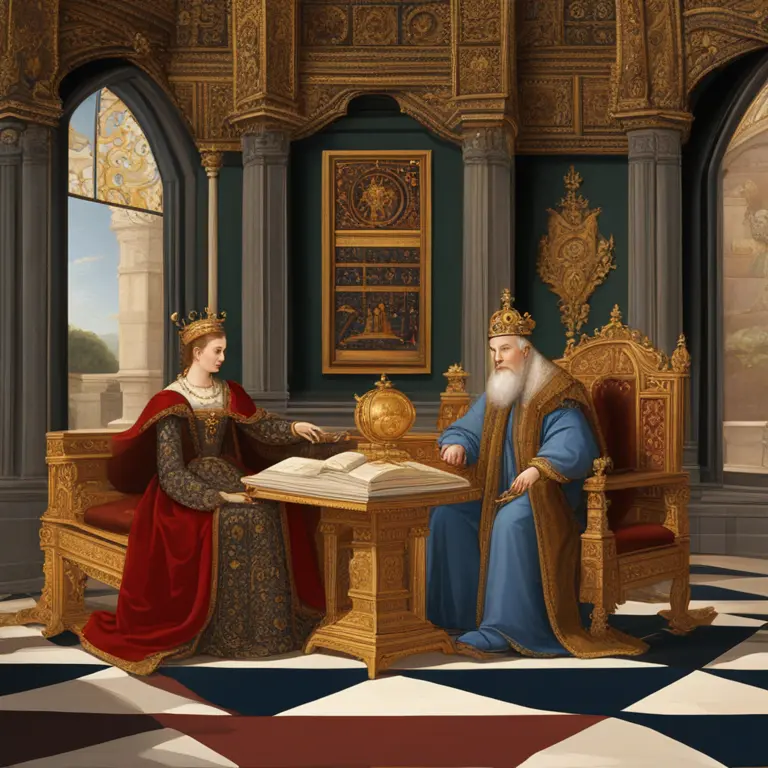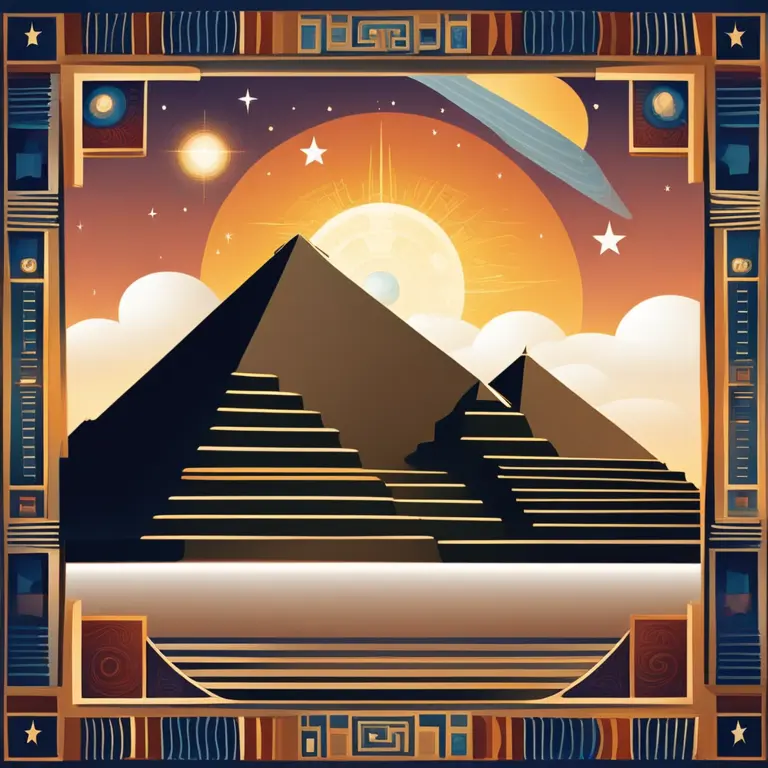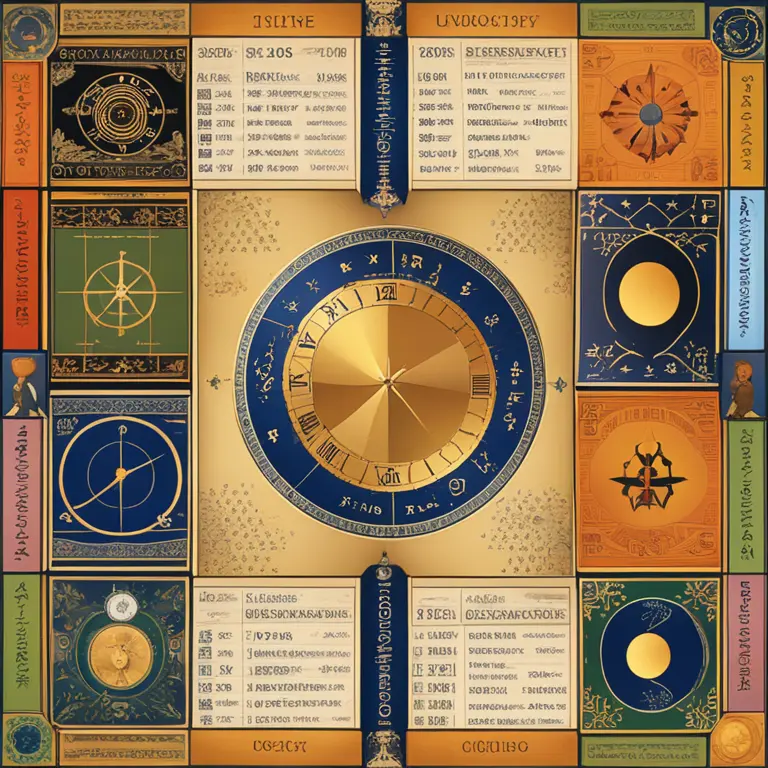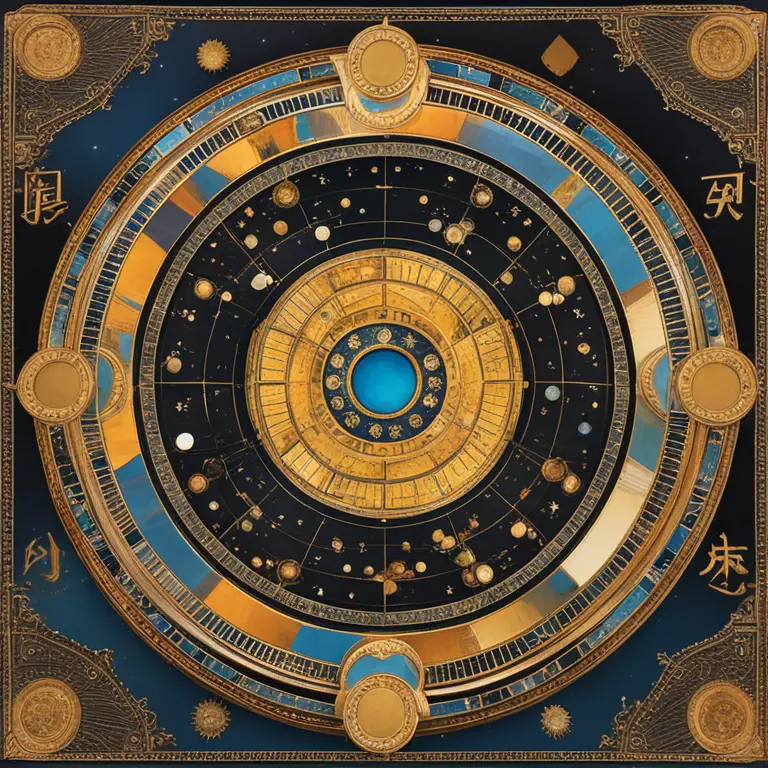
The Origins of Astrology: Tracing Its Historical Roots
Delve into the historical origins of astrology and discover the ancient civilizations that contributed to its development as a mystical practice.
article by Priya Deshmukh
The Dawn of Astrological Practice
The roots of astrology can be traced back to several ancient civilizations, who turned their gaze heavenward to divine meaning from the stars. From the Babylonians constructing elaborate omens to the Egyptians aligning their pyramids to stellar patterns, astrology's lineage spans millennia. It is widely recognized that the Babylonians, around the 2nd millennium BCE, formalized astrology into a coherent system for predicting terrestrial events from celestial observations. These early practices laid the groundwork for later astrological developments across cultures and eras, shaping the intricate systems used by modern astrologers.

Astrology's Expansion and Evolution
As trade and conquest allowed for cultural exchange, astrology spread to the ancient Greeks, who, in turn, enriched it with philosophical underpinnings. The works of Ptolemy in the 2nd century CE in Alexandria were pivotal; his treatise, the Tetrabiblos, became a foundational text for Western astrology, integrating astronomical observations with astrological predictions. Astrology's development was neither linear nor uniform, with differing schools of thought emerging, each offering their interpretation of cosmic influence over human affairs.

The Eastern Philosophical Influence
Concurrently, Vedic astrology or "Jyotisha" was burgeoning in India, tracing its origins to ancient Hindu scriptures known as the Vedas. The unique Indian system focused on the concept of karma and reincarnation, offering a distinctive perspective on life's events and spiritual growth. Chinese astrology too flourished, with a unique zodiac system that incorporates traditional Chinese philosophies and operates in conjunction with the lunar calendar. This demonstrates the diverse origins and evolutionary branches of astrological practice around the globe.

The Revival and Renaissance
The Medieval and Renaissance periods saw a revival of astrological studies in Europe, with notable figures like Nostradamus and Tycho Brahe contributing to its lore. Astrology's utility spanned medical diagnoses and political strategy, with astrologers often holding esteemed positions in royal courts. Although the rise of empirical science in the Enlightenment era led to astrology's marginalization, it did not extinguish the public's fascination with the stars, paving the way for astrology's reemergence in the modern era.

Modern Astrology's Digitized Presence
Today, astrology enjoys a renaissance in the digital age, with online platforms and software offering personalized horoscopes and astrological services. The proliferation of internet resources and mobile applications in 2024 has made astrology more accessible than ever, intertwining ancient practice with modern technology. Despite ongoing debates regarding its scientific validity, astrology continues to capture the human imagination, as it has for thousands of years.
Astrology: A Living History
In conclusion, the question of who invented astrology is less about an individual's genius and more about the cumulative knowledge of ancient cultures interpreting the cosmos. Its invention is a testament to humanity's enduring quest to find meaning in the universe and its reflection in our earthly existence. As the world moves forward, astrology is poised to evolve further, intriguing minds and guiding those who seek wisdom from the stars.
Published: 2/5/2024
Modified: 2/5/2024
More predictions
Come back here soon to learn more about yourself and your future


The Zodiac Signs and their Influence
Delve into the intricate world of zodiac signs, where celestial alignments offer insights into personality traits, future forecasts, and life paths.


Haircuts & Moon Phases: A Mystical Guide
Discover how the phases of the moon can influence your hair care and cutting rituals for optimal growth and vitality.


Zodiac Signs: Dates and Meanings
A concise guide detailing the dates and fundamental characteristics of the twelve zodiac signs.